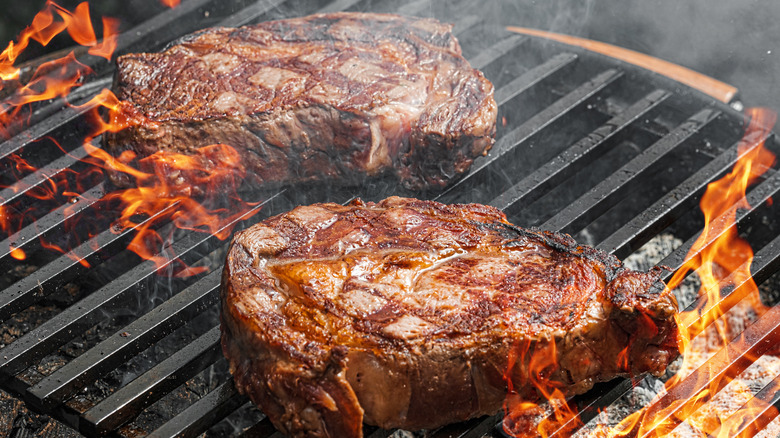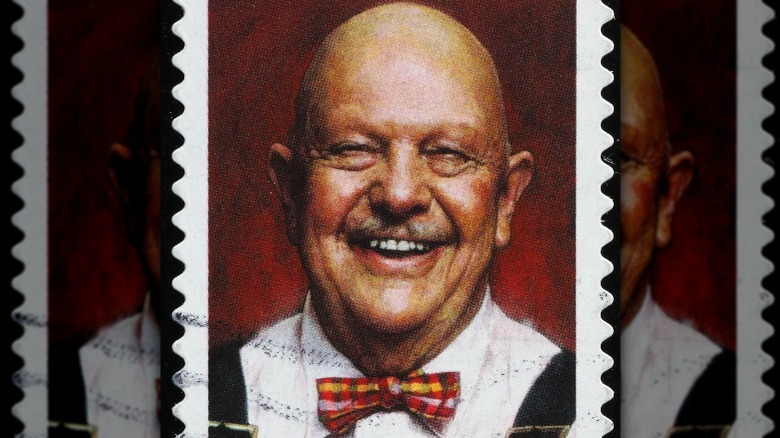The Iconic Chef Who Used Actual Poison To Grill Steak
There are as many ways to cook a steak as there are types of cuts to cook. Although the word "steak" usually refers to a cut of beef from a cow, the name can describe a thick cut of protein, like fish, or vegetable, like cauliflower, served like a beef steak.
With over a dozen popular cuts of steak to choose from, each meat lover has a favorite. Some larger cuts are meant to be sliced and shared, like flank steak, while other steaks are conveniently butchered into smaller portions. The most tender cut is filet mignon, which also happens to be the most expensive cut. For more flavorful cuts of beef, carnivores opt for beef with more marbling or fat, like ribeye or New York strip. Can't decide? A T-bone or its larger sibling, the porterhouse steak, contains a strip loin and tenderloin divided by a bone.
The internet contains hundreds of recipes for cooking the perfect steak, and going through all those choices can be challenging. Sometimes we choose a recipe based on the highest ratings; other times we recognize a recipe from a trusted chef and assume that's the best one — and certainly that its ingredients are safe. No so for one famous chef.
James Beard grilled with poison
James Beard, the iconic chef whose coveted namesake award recognizes "exceptional talent and achievement in the culinary arts, hospitality, media, and broader food system" according to the James Beard Foundation's mission statement, wrote tons of cookbooks long before everything was posted to the internet. "The James Beard Cookbook," published in 1959, was heralded by the New York Times as "one of the best basic cookbooks in America" and has a recipe for grilled steak that uses paint thinner.
Yes, Julia Childs' mentor suggested using poison when grilling meat and claimed the recipe was "one of the American male's favorite ways of preparing steak," adding that it was "great fun and fine eating." According to the recipe, charcoal briquettes should be soaked in paint thinner or lighter fluid for several hours to prepare the grill properly. In Beard's defense, it wasn't until 1987 that the U.S. Consumer Product Safety Commission placed a carcinogen warning on cans of paint thinner.
Past use of paint thinner aside, America's beloved obsession with grilling itself comes with a carcinogen warning. Researchers have found that grilling steak over high temperatures creates heterocyclic amines (HCAs), which are carcinogens (per the New York Times). Those black grill marks we strive for are the results of HCAs.
Since cooking outside is one of the benefits of warmer temperatures, reduce your risk by lowering the heat on the grill or limiting the time you cook meat at high temperatures. And please don't soak the charcoal in anything toxic, no matter who suggests it.

